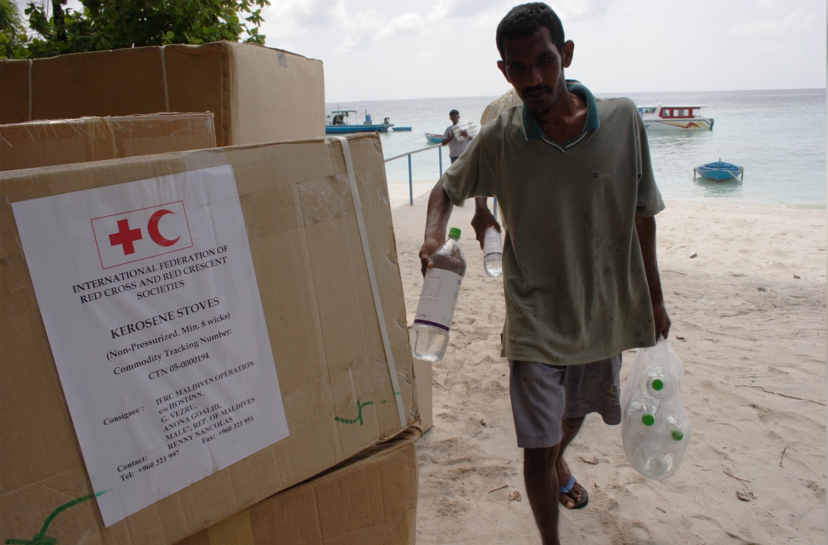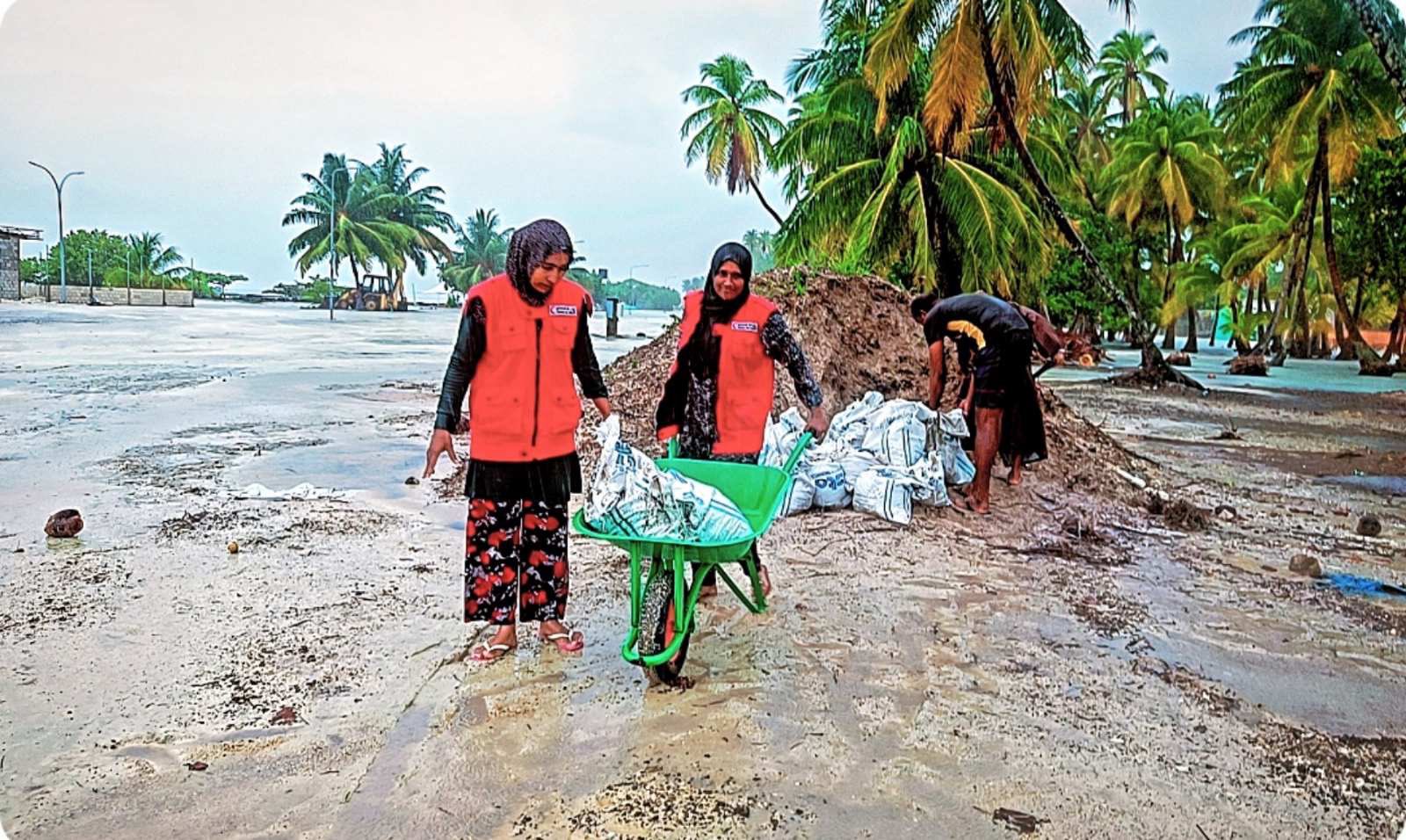Resilience in the Face of the 2004 Indian Ocean Tsunami: Surayya's Story

The morning of December 26th, 2004 began with the usual and bustle. Surrayya was preparing for the arrival of a member of the Parliament, a significant event for the small island community of Meemu Kolhufushi. But the excitement soon turned to terror.
Suddenly, an unsettling sound shattered the morning peace. A series of loud booms, like distant gunshots, echoed across the island. Surraya recounted panicking to find her sibling, who she had sent to fetch water. Once he was found, they then scrambled onto the nearest wall for safety from the waves. But the ground trembled, and the walls began to crumble around her. In the distance, she saw her family's water tank, a towering fixture in their yard, being lifted and swept away by the surging water. The floodwaters rose swiftly, reaching the branches of the trees.
The tsunami surged over the island, an unstoppable force that obliterated everything in its path. Surraya, clinging to her younger brother, watched in horror as her elderly neighbour got swept into the sea. Then, as abruptly as it began, the water receded. Surrayya spotted her father, frantically running towards them. They fled to the nearest high ground to seek refuge – a nearby stage that was used for community events and festivals, only to be met with another huge wave. Seventeen people lost their lives that day.
The aftermath was a scene of devastation. The island was transformed into a wasteland of debris, made worse by a sudden onslaught of rain that first night. The community, Surrayya’s family members included, found shelter in a makeshift camp, with some climbing into boats. They would later be housed in temporary shelters, which would become their life for the next ten years.
.jpg) A snapshot of the Meemu Kolhufushi community, adjusting to life after the Tsunami
A snapshot of the Meemu Kolhufushi community, adjusting to life after the Tsunami
Life in the temporary shelters was a constant struggle. Sharing toilets amongst countless families was a daily ordeal. The tsunami had not only destroyed their homes but also shattered their dreams. Surrayya, once so eager to pursue her nursing aspirations, felt a heavy weight of guilt. How could she leave her family to suffer while she pursued her own ambitions? The trauma of the event had deeply impacted Surayya and her community, and the psychological scars ran deep.
Years later, as Surraya looks back on that fateful day, she remembers the fear, the loss, and the resilience of her people. The tsunami had irrevocably altered the course of their lives. But amidst the devastation, a spirit of community and hope had emerged, a testament to the enduring human spirit in the face of unimaginable tragedy.
The relief and rebuilding efforts soon started after the Tsunami, with Reconstruction and Recovery being a key priority. IFRC, with other organizations aided in rebuilding homes, schools, health centres, and essential infrastructure, such as water and sanitation facilities. There was also a concerted effort in establishing long-term water desalination and rainwater harvesting systems on islands where freshwater was scarce.
Five years on after the Tsunami, the Maldivian Red Crescent (MRC) was formed in 2009. For 15 years since then, MRC alongside its valuable partners have focused on Disaster Preparedness and Response via training programs and workshops to improve local disaster preparedness and response capabilities. One of MRC’s main priorities are to strengthen community resilience through its emergency response teams and early warning systems. The organisation continues working closely with local communities and the Maldivian government to ensure that recovery efforts are aligned with the specific needs of affected populations.
With the formation of the Maldivian Red Crescent, an MRC Unit was established in Meemu Kolhufushi. Through the mobilization of volunteers, the Unit works with local partners and organisations, the Island Council and National Partners to carry out community–based programmes and respond to emergencies and disasters.
 MRC Kolhufushi Unit volunteers responding to a flooding incident.
MRC Kolhufushi Unit volunteers responding to a flooding incident.
The comprehensive response of the IFRC and other National Societies, in partnership with the government and state and local partners, to the 2004 Tsunami have spanned several years and focuses on helping the Maldives recover while building long-term resilience to future disasters.